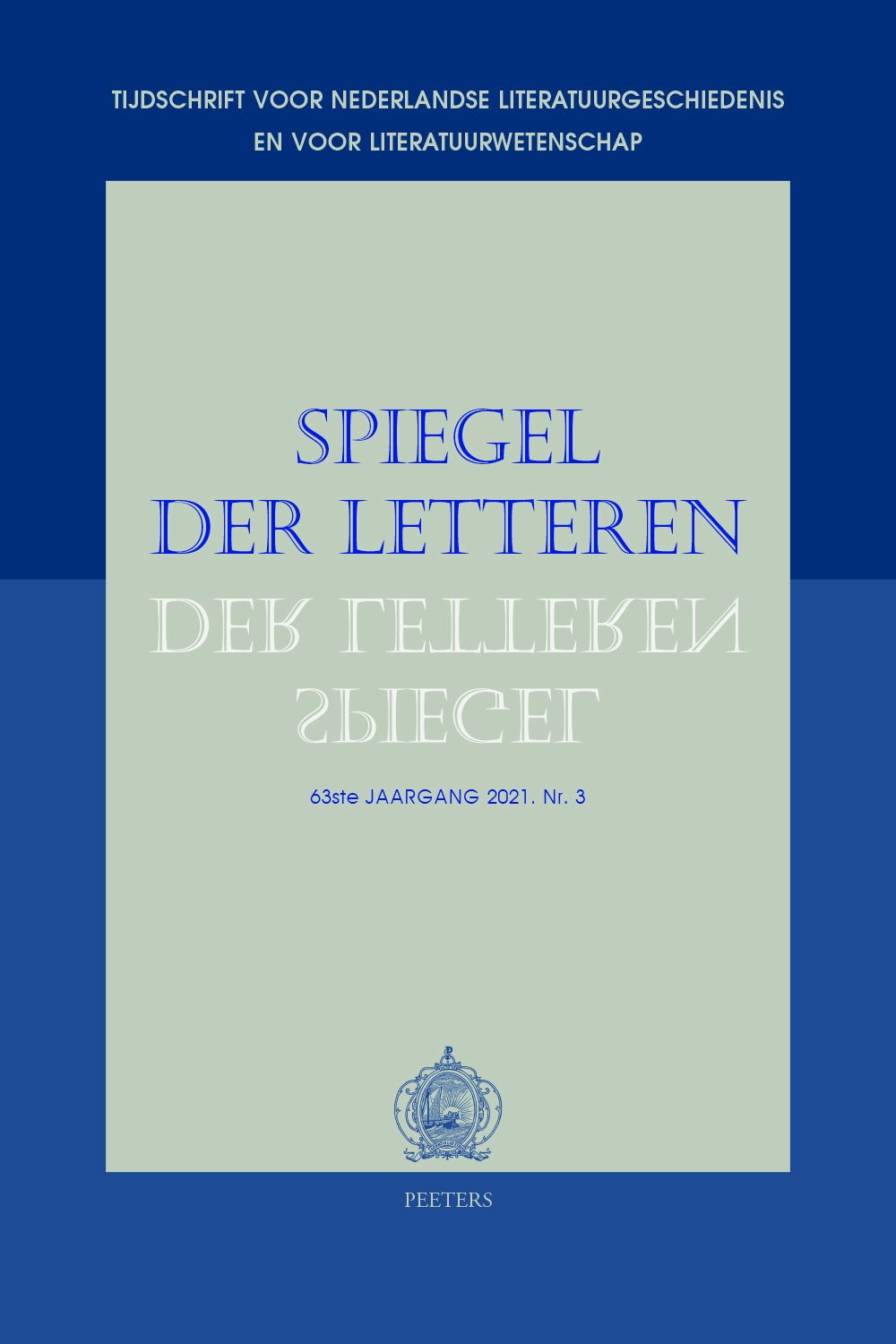 previous article in this issue previous article in this issue | next article in this issue  |

Preview first page |
Document Details : Title: Bevochten vrijheid Subtitle: Nederlandse letterkunde in een historische context Author(s): JONGENELEN, Ton Journal: Spiegel der Letteren Volume: 46 Issue: 3-4 Date: 2004 Pages: 381-391 DOI: 10.2143/SDL.46.3.2004785 Abstract : This contribution discusses the importance of censorship in the history of the Dutch Republic. In the past decades H.A. Enno van Gelder’s opinion that the formal restrictions posed on writers, editors and booksellers were without any effect due to the inner conviction of civil servants who felt uncomfortable with these laws, has provoked severe criticism. More recently, however, the writers of a prestigious overview of Dutch seventeenth-century cultural history, Willem Frijhoff and Marijke Spies, have again endorsed this theory of wilful tolerance and have argued that the government stimulated a public debate in which all citizens were free to participate. Noticing that the authors of the companion volume covering the eighteenth century date the genesis of a free public debate around 1830 and that they rule out any earlier developments, this article argues for a detailed and systematic reconstruction of the daily practice of censorship, taking into account the shifting political concerns of the ruling elite. In order to illustrate this concept of continuous change and to boost the discussion, this contribution ventures to paint an impressionist picture of the period 1650-1795. |
|


